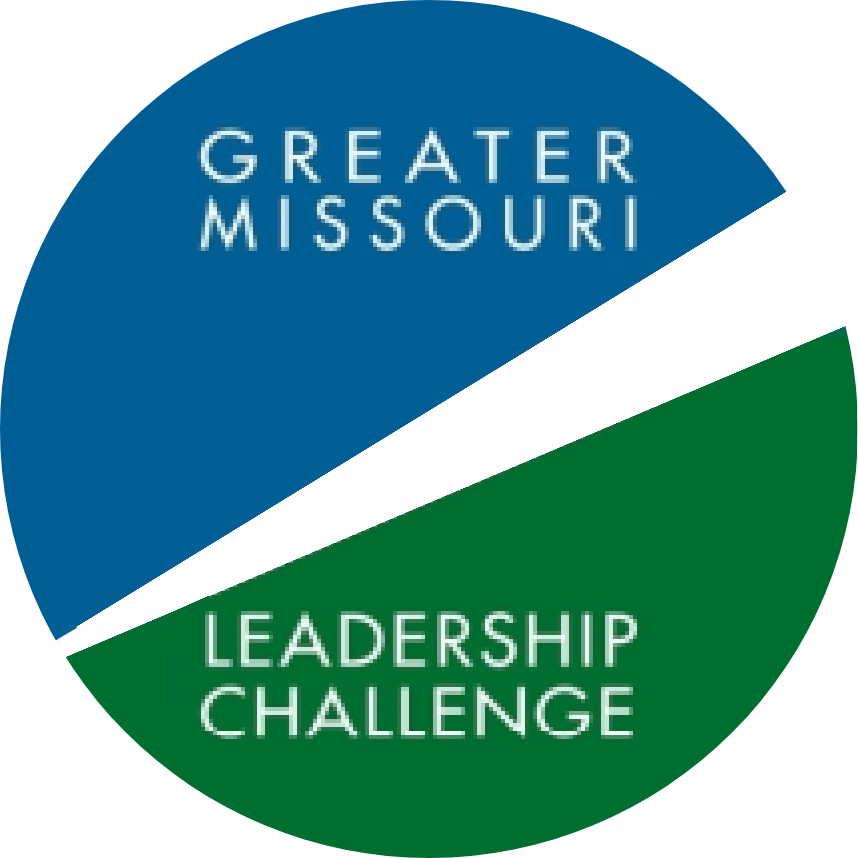Each year Greater Missouri participants travel to four distinct geographic areas in the state of Missouri where they are involved in compelling discussions about issues relevant to that area. Participants are also exposed to a broad range of influential speakers and unique experiences that address topics that are both timely and thought-provoking.
Session Overviews
Session I
Governmental/Political Process and Education
Columbia and Jefferson City
This session starts with an overview of Missouri to provide participants a broad understanding of the current demographics and key issues affecting the state, ranging from the economy to healthcare to social services. This high-level overview is intended to provide a foundation for many of the topics that will be discussed throughout the Greater Missouri Leadership program.
Education
Representatives from higher education and public school leaders will provide participants an understanding of the challenges and trends in education and will discuss ways some schools are responding.
Executive Process
Efforts will be made to ensure participants gain access to members of the governor’s staff to better understand the priorities of the current administration.
Legislative Process
Appointed and elected officials will speak to participants about current legislation and provide an overview of the political landscape in the state of Missouri. Emphasis is put on how legislators conduct governmental business. Participants will understand more comprehensively how individuals and organizations can work with members of the legislature to get things done.
Judicial Overview
A visit to the Missouri Supreme Court and a closed discussion with a Supreme Court Justice will provide participants with the chance to learn about pressing issues being considered by the Court.
Session II
Urban Issues, Diversity & Race Relations: Impact on Urban Renewal & Economic Development
Participants will understand the connection between diversity and economic development and better understand the opportunities, challenges, and impact that diverse communities experience as they attain economic success.
- Learn how the area evolved and determined residential areas, business areas and social boundaries.
- Tour different areas of the city and learn how each area differed in revitalization and redevelopment efforts, including business and residential initiatives. Included in this will be information and perspectives to better understand the impact of diversity (ethnicity, race, socio-economic) on the evolution of and relationships within communities.
- Understand how funding sources and strategies help a city revitalize and sustain viability, including tax proposals, private investment, and community development corporations.
Build greater awareness and perspective of our own internal biases.
The Non-Profit Community
Participants will understand the role non-profits play in the vitality and stability of our communities. They will learn about the evolution of non-profits and how they respond to changing conditions in the environment and economy.
- Gain an understanding of the significance of non-profits to the health of the community and its changing
landscape. - Be exposed to the relationship of marketing and philanthropic efforts in the non-profit area.
- Meet funders of non-profits and learn about giving strategies.
- Learn how non-profits have responded to shifting funding strategies, economic challenges and the challenging and changing work of constituents in making non-profits succeed.
- Gain exposure to private and public collaborations in the community and evaluate the effectiveness of programs and services.
Women in Leadership
We will introduce participants to women in leadership from different cultures, ethnicity, industries and positions within both the private and public sectors.
- Be exposed to women leaders with significant public and governmental roles.
- Learn how women impact the criminal justice system and the unique issues faced by women in criminal justice, public safety, and social service.
- Learn of resources available to them when running for public office and learn how women serve their communities in elected, appointed, and staff capacities.
- Meet with successful women business leaders in the community and understand their journeys, challenges, and perspectives of the glass ceiling.
- Better understand and appreciate the issues confronting women leaders of color and how they address them.
Session III
Rural Development
Kirksville/Macon
Our visit to Northern Missouri is intended to provide Greater Missouri participants an introduction to the issues facing smaller Missouri communities and how they are similar to or different from our more metropolitan areas.
Rural Missouri
- Gain a “big picture” understanding of the issues facing rural Missouri – including emerging worldwide trends and how they impact Missouri, and how these trends affect those living and working in northern Missouri
- Understand the changes rural Missouri is reacting to, what national or state agriculture policy changes are
or will address these changes
Role of Rural Towns
- Definition of “rural” – the demographics of rural Missouri, including percentage of land mass, people, economic activity, etc. – and the unique aspects of northern / NE Missouri
- Develop an understanding of the culture of the region that lead to the establishment of the two premier Institutions of Higher Education, and how the evolution of those two campuses hae not only left a lasting impact on the region but on the state and nation.
- Expand understanding of the complexity of the economic development of a rural town, and its economic engine of agriculture and related businesses, and examples of how the evolution of the farm and agricultural industrialization changed rural living and the rural way of life.
Evolution of Agriculture
- Gain a perspective on how farming and the agricultural industry have changed in the past 100, 50, 10, and 5 years
- Understand drivers to change and their effects
- Role of the national and/or state government policies and regulations
- Role of technology in farming, and the agriculture industry as a whole
- Capital costs rising, small specialized operations, family farms, supplemental income vs. large operations
- Explore the economy of energy regarding alternative fuel options – how the process of making ethanol and the use of its byproducts fits into the evolution of agriculture, the role of rural towns, and resource management.
Resource Management
Understand the land, water, and energy needs of ethanol production, and how they may be addressed in a rural environment. Understand the policy issues that may affect the ethanol industry.
- Explore how access to other infrastructure assets might hinder or assist development of the region such as broadband access, transportation funding, public and private land restoration, conservation, and learn how local, state, and national regulatory policies might impact growth and opportunity.
- Learn about local efforts to develop efficient and effective development of the region’s resources when they are needed to include the financial resources, human skills, production resources, and/or information technology (IT) and natural resources.
Session IV
Global Perspectives
St. Louis
Our visit to St. Louis, Missouri is intended to provide Greater Missouri Leadership Challengers an introduction to Missouri’s scientific and research contributions as well as the role some Missouri corporations play in the global economy.
-
- Gain a global perspective on Science, the Green Business Movement (the Environment), Life Sciences – how these industries have shaped St. Louis, and the role St. Louis plays in them today.
- Expand understanding of the issues faced by global businesses.
- Learn how various corporations employ technology to manage their business activities.
- Explore ways to get involved in the various issues facing Missouri and its citizens.


